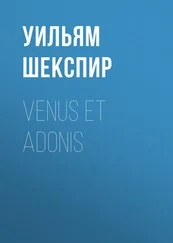On Saturday morning, sitting on the terrace in the corner previously described, I was reflecting on my proposed pursuit of Ned and wondering, rather anxiously, whether it might cause distress to his friend Kenneth. I would be reluctant — for I am well-disposed towards artists — to do anything which might give pain to one. That there is an attachment one can hardly doubt, but whether it is a deep and sincere attachment, of the kind which makes people upset, or of a merely frivolous nature, I cannot at present be certain. I reasoned, however, as follows:
(1) either Kenneth is deeply and sincerely attached to Ned or he is not;
(2) if he is not so attached, then my pursuit of Ned will cause him no distress;
(3) if he is so attached, then either the attachment is reciprocal or it is not;
(4) if it is reciprocal, Ned will reject my advances and my pursuit of him will accordingly cause Kenneth no distress;
(5) if it is not reciprocal, Kenneth will suffer distress whether or not I pursue Ned;
(6) if Kenneth will suffer distress whether I pursue Ned or not, my pursuit of Ned cannot be the cause of Kenneth’s distress;
(7) it is therefore logically impossible for my pursuit of Ned to cause Kenneth distress.
I had taken up my pen to report to you this example of the usefulness of logic — without which I might have come to an altogether different conclusion — when I saw that Marylou had come on to the terrace. She is by no means one of those whom I would wish to avoid: I emerged from the cover of the vine or similar shrub.
“Are you,” I asked, “waiting for your husband?”
“My husband,” said Marylou, “has gone to Verona for the weekend to stay with a business associate.” She made the expression “business associate,” which I would previously have thought innocuous, sound decidedly pejorative. She didn’t make “husband” sound all that flattering, either. Wondering if these were discreet American euphemisms for some unmentionable debauchery, I made noises of sympathetic enquiry.
Stanford is employed by the English subsidiary of an American engineering firm. He is, it seems, one of those abrasive, dynamic young executives who refuse to take holidays unless calculated to further their acquaintance with those useful in business. Still, after a campaign of several months, Marylou had at last persuaded him to take her on a genuine private vacation — one, that is to say, during which Stanford would devote to her his whole time and attention and she, in her turn, would not be obliged to make polite conversation with the wives or other relatives of his customers and colleagues. Or so, poor girl, she had believed. At the last moment before their departure, he had disclosed to her his acceptance of a weekend invitation from an important customer in Verona. Justly indignant at his duplicity, she had refused to go; but now she had no one to look at Venice with her.
I suggested, naturally, that we should explore it together, and asked if there was anything in particular that she would like to see.
“I saw a divine set of embroidered table linen when we went to the Rialto yesterday,” said Marylou. “But I didn’t have time to buy it. Could we go back there? Or is it too far?”
I assured her that it was not. Although the distance from St. Mark’s to the Rialto represents nearly half the length of the Grand Canal, it is, by land, a mere five minutes’ walk.
That, at any rate, is the impression given by the map in Ragwort’s guide book. There is a strange lack of correspondence between places as represented by maps and places as they actually are. Setting forth on a route which should lead one, according to the cartographer, to one’s objective in square F11, one suddenly finds oneself outside a church which he assigns to square M3. If, as in Venice is always the case, the church contains two Bellinis and a Giorgione, it is hardly possible for the Art Lover to pass by without a glance.
Our progress towards the Rialto was therefore erratic. Our passage across it was no less dilatory. Of the two rows of shops which line the ancient bridge, none could complain of lack of patronage. It was not only the set of table linen: it was, in the end, three sets of table linen; it was lace shawls; it was leather purses, elaborately decorated; it was little glass mice, holding orchestral instruments; it was many other things of pleasure and delight, all described by Marylou as perfectly divine and not really expensive. Graziella had told us of the great days of Venetian commerce, when all the money in the world was said to change hands on the Rialto: it appeared Marylou’s ambition to restore them single-handed.
We came at last to the far bank of the Grand Canal and the district known as the Dorsodouro. Seeming rather to welcome the student than the tourist, it is altogether different from that of St. Mark’s. There is in the very air an almost Attic saltiness, reminding one that here indeed is one of the historic centres of the European intellect, the nursery of the Renaissance, the acropolis of free thought against the pedantry of Popes and the tyranny of princes. Here the great Aldus—
“That’s not what Graziella said yesterday about the Council of Ten,” said Marylou, the confidante of these reflections.
“Graziella,” I replied kindly, “was talking yesterday about the Middle Ages. I am now speaking of the Renaissance, which is entirely different. And I should mention, Marylou, that to interrupt Counsel, when fairly launched on a nice piece of rhetoric, is the exclusive prerogative of the judiciary — and in them to be discouraged.”
I had forgotten that Americans always think one means what one says. To my dismay, she began to apologize. I added at once that she was a dozen times prettier than the entire High Court Bench, and might interrupt me whenever she pleased. But she seemed unpersuaded. By way of further assurance, therefore, I kissed her on the nose. This occurring outside the Casa Rezzonico occasioned some mockery from the passing Venetians; but in all good nature, Selena, what less could I have done?
“No good will come of this,” said Ragwort.
“It was only on the nose,” said Selena.
We had lunch in the restaurant recommended by Ragwort, off the Campo San Barnaba, where a vine-tree has spread its branches to make a roof over the garden. They fed us on vegetable soup and omelettes and gave us cold wine in a china jug. I hoped, with these diversions, that Marylou might forget her matrimonial discontentment. Not so, however.
“Julia, honey,” she said, somewhere around the second grappa, “do you think that marriage can be a valid interpersonal relationship in a life context?”
“I am not well qualified to judge,” I answered cautiously. “I am not a marrying woman.”
“I guess you’d think it intrusive,” she said, “if I asked why not.”
“By no means,” I said hastily; but explained that there was no one with whom I would contemplate such an arrangement except my learned and elegant friend, Desmond Ragwort,
“Well, really,” said Ragwort.
who had, however, rejected my honourable proposals.
“You mean you asked him and he said no?” said Marylou.
I confirmed that that was indeed the case. She was shocked at such heartlessness and undiscernment and displayed, warm-hearted girl, such sympathetic indignation on my behalf.
“It’s a bit much,” said Ragwort.
that I felt obliged to point out, in extenuation of Ragwort’s offence, that any virtues I possess are not of a domestic nature. This, however, did not placate her. If, she said, all Ragwort wanted was someone to keep the house clean and give him a nice time in bed
“From Julia of all people,” said Ragwort.
then he was not worthy of me: a woman of my intellect and personality, she said, needed someone who would appreciate her as a person, not merely a household object.
Читать дальше











